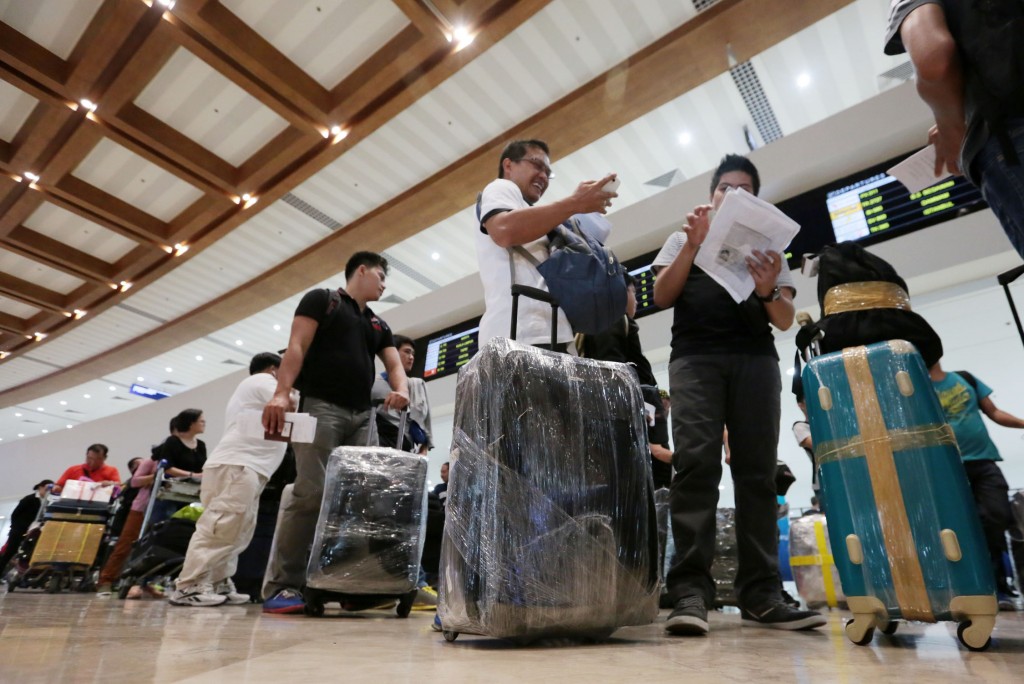
Departing OFW’s wait in line to check in at the Ninoy Aquino International Airport (NAIA) terminal 1 on Monday, November 2, 2015. INQUIRER PHOTO / GRIG C. MONTEGRANDE
THIS must be a piece of good news for overseas Filipino workers in Korea.
The Republic of Korea’s new minimum wage for all workers, including Filipino workers under the Employment Permit System, will be increased in 2017, Labor Secretary Silvestre Bello III said in a statement.
According to him, Korea’s Ministry of Employment and Labor (MOEL) has fixed the minimum wage for 2017 at 6,470 won or at US$ 5.83 per hour, up to 7.3 percent from the current year which is 6,030 won per hour.
“About 24,490 Filipino employees in small and medium manufacturing industries, mostly in factories in Korea under the government to government hiring or the Employment Permit System (EPS) shall be covered by next year’s new base rate,” said Bello.
Calculated on a standard of eight working hours a day, the daily minimum wage translates to 51,760 won, 258,800 won for 40 hours per week and at 1,352,230 million won for those who work 209 hours full time in a month, he added.
The minimum wage in South Korea has constantly increased over the years: 7.2 percent in 2014,7.7 percent in 2015 and 8.1 percent in 2016.
The MOEL said the pay raise will affect an estimated 3.36 million workers in the nation, 17.4 percent of the entire work force, including foreign workers.
Minimum wage in Korea covers all employees as defined in the Labor Standards Act, regardless of their employment status or nationality.
Bello said Filipino workers may seek assistance from the Philippine Overseas Labor Office or the nearest job stability center which has jurisdiction over the concerned workers’ workplace if their employer failed to pay the prescribed salary.
According to the Philippine Overseas Employment Administration (POEA), Korea is one of the Philippines’s favored destinations for OFWs because of the demand for foreign workers under the EPS system, especially in labor shortage industries, such as agriculture, stockbreeding, fishery, construction, and manufacturing.